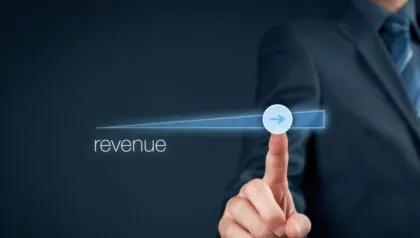
Clients often come to us with an idea for an app. The first two questions they ask us are “How much will it cost?” and “How long will it take to build?”
Before we can answer these questions, however, we pose a different question: “If we had this app ready to go on Monday morning, what would you do with it?” You would be surprised at how many times the answer we hear is, “I’m not sure.”
And hey, we get it. You think you have a great idea, and you get excited about it. We get excited too.
But if you want to do more than just build a functioning app—if you want to create a successful app that makes money and turns into a full-fledged business—then you need to take a step back and think about all of the moving parts. And you need to be ready to answer all the tough questions you’re going to be asked, if you’re going out for funding.
The truth is, you need to think about sales, marketing, support, back-end integrations, and more. And you need to think about how you will fund all of these elements in order to get to the point where sales fund them for you.
This all starts with a business plan or pitch deck for your app, and ends (hopefully) with enough funding to make your vision a reality. We help our clients with this part of the app development process every day. We want to share some of our advice here.
Quick guide to a business plan or pitch deck for apps
Unfortunately, no matter how great you may think your idea is, investors aren’t going to hand over funds unless you can first convince them that you have a market that wants your product (and you know how big that market is), the right product to serve that market, and the team that can deliver that product to the market. So you need to do your homework first, and create a business plan for your app.
Your business plan or pitch deck should start with an overview of your company. Include a brief history and bios for the leadership team. This section is important, as investors will want to learn about the people leading the company.
Then you should answer three specific questions:
1. What problem does your app solve? In other words, is there a need for your app? Your idea may be a good one, but if it doesn’t solve a problem or make the user’s life easier or more enjoyable, you may need to rethink your plan.
2. How is your app the solution to that problem? This section should provide detailed information about the value your app adds to the end user. Find out if there are already apps in the market providing the same product or service. If there are, what makes your idea different, and why would users choose your app over the ones already available? In other words, clearly define your unique value proposition.
3. Who is the target audience? Is your app designed for commercial use within a company or is it for the end consumer? Is your app targeted at a specific demographic or industry?
The next part of your plan or deck should consist of competitive market research. What other companies are already in this space? What are they offering and how are they performing? What is the market size for this app? Conduct a SWOT analysis of the strengths, weaknesses, opportunities, and threats in the marketplace to show you have done your due diligence and can demonstrate the chances of success for your app.
Your business plan or pitch deck should also include a marketing plan. How do you plan to market and launch the app? And how will you measure success?
We have written about how to market and launch an app in the past. We suggest consulting that article for more details, but the high level steps involved include:
- Optimizing the app for search
- Conducting comprehensive quality control and security
- Implementing app analytics
- Formally planning the launch
- Selecting the appropriate app store for best results
- Designing an eye-catching icon
- Creating an enticing app profile
Once launched, your work is not done. There is post-launch app marketing that needs to be done as well. This includes gathering user reviews and ongoing promotional efforts, such as advertising, social media, outbound campaigns, podcasts, and videos.
Finally, your plan or deck should cover financials—how you intend to fund the app. How will you cover the projected costs of development, advertising, marketing, and maintenance? Make sure you are realistic. A good rule of thumb is to add everything up, then double it. Unexpected expenses always occur.
Do you anticipate needing future rounds of funding? If so, what is the projected timeline? If applicable, outline ways in which you will monetize your app. Will there be in-app purchases or paid ads?
In addition to a business plan or a formal pitch deck, you will need to develop an elevator pitch—a short and simple (30 seconds or less) description of your app and the value it creates. If you can’t do this, we suggest going back to the drawing board and refining your idea. An elevator pitch is how you can gain the attention of potential investors and get a full meeting to discuss the deeper details of the app.
App funding options
There are various avenues you can go down to obtain funding for your app idea. You may find a combination of approaches works best for you. Some of our clients have taken this approach. If you’re not sure of the smartest way to fund your app, we have often coached our clients in this endeavor and are happy to discuss your idea and finances with you.
Before you seek funding, you need a mock-up or interactive prototype to show potential investors. Once you have something to demonstrate how your app works (and a solid business plan to back it up), you’re ready to seek funding.
The most popular funding options are outlined below:
Self-funding
Obviously, if you raise the money yourself (or have the cash on hand), you have total control over the project. However, there are risks that come with this approach. If you can manage to raise enough money to fund the app yourself and it isn’t successful, you may lose everything you put into the project.
Angel investors
Angel investors are external investors who purchase common stock in the company. Typically, angel investors don’t demand a lot of control over the project, so it affords you the freedom to develop the app according to your vision. There are websites that can help you locate potential investors, such as AngelList and Funded.com.
Venture capitalists
Venture capitalists will demand more control than an angel investor, and can be overbearing. But they are often also more experienced. So they may be able to provide expert guidance during the process that may be helpful.
Bank loan
A traditional bank loan is, of course, another option for funding your app idea. Interest rates and the volume of cash you need all come into play to determine whether this is a wise avenue to pursue.
Crowdfunding
Crowdfunding raises money from a group of investors in smaller amounts. There are different types of crowdfunding. Donation-based crowdfunding, such as GoFundMe, is based purely on donations, so contributors do not expect something in return. Another option is a reward-based system, such as KickStarter, in which donors receive a small reward (such as early access to the app). The other type of crowdfunding is investment funding. In this scenario, money is raised by selling securities in the company.
App contests
App contests give you the opportunity to show your idea for an app to potential investors. The prize? Funding for your app, of course. Even if you don’t win, you can still get your idea in front of investors, which may prove beneficial in the long run.
Customer-funded
If you have an existing customer who is an ideal user of your app, you can go to them and see if they would be interested in funding development. You will need a mockup or prototype to show them. If they are interested, they will get to have the app built to their liking and have the added benefit of being the first to use it.
Build an MVP
A Minimum Viable Product ( MVP) is a functioning version of your app that allows you to gain some initial traction. It costs less money to build, and you can then use that money to fund future iterations. An MVP can also be used to gain the interest of investors, who may then be willing to fund future development.
There are inherent strengths and benefits with each type of funding, so it’s important to explore your options and make the best choice for your vision, finances, and goals. Seek expert guidance from people who have experience with application development if you’re not sure of the best ways to fund your app idea. A well-thought out app idea that is backed up by a solid business plan or pitch deck is the best way to increase your chances for success.


